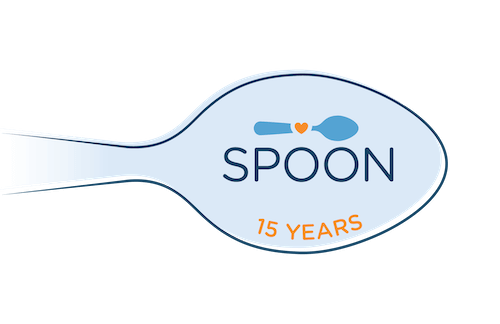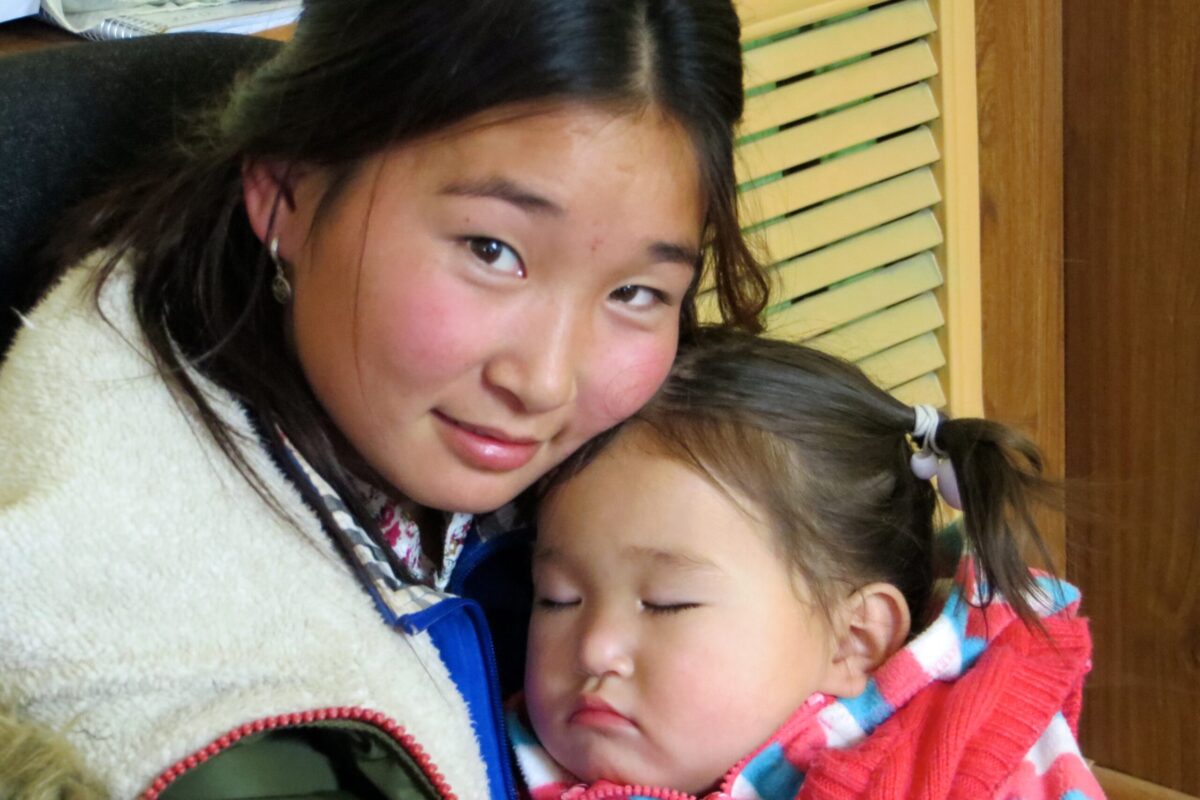SPOON focuses on meeting the nutrition and feeding needs of children with disabilities and children without family care, but we know that nutrition and feeding are not the only things children need. To grow and thrive, children also need the love, consistency, and responsive care of a family. Our programs work in the context of a global movement called ‘care reform’, and this post explains what that term means and how it affects our work.
What is care reform?
Care reform focuses on helping families stay together, working to reunite children with their families, or setting up alternative family care like foster care, kinship care with other relatives, or adoption. The ‘reform’ refers to a process of transforming systems of care for vulnerable children and families so that every child gets the support they need to thrive in a family.
Most children in residential care (sometimes referred to as “orphanages”) are not orphans. The most common reasons for children to be placed in a residential institution are poverty and a lack of support for their caregivers.
One related concept is deinstitutionalization. Deinstitutionalization is the process of moving children from residential institutions into family care and ending the practice of placing children into institutions. For more terminology related to alternative care, the Better Care Network’s Glossary is a great place to start.
How do nutrition and feeding fit in?
Malnutrition, food insecurity, and feeling unable to feed a child safely are common reasons why a family may feel they have to place their child in an institution. Children in institutions face increased risks of malnutrition due to factors like poor diets, unsafe feeding practices, and a lack of nurturing care. Additionally, when children in institutions transition to family care, families often need extra support in nutrition and feeding to manage the root causes that led to their separation.
Improving the nutrition status of children in alternative care will not only support children’s development, but will also make the transition to family care more successful. Read more about the connection between nutrition and care reform in our advocacy paper, Prioritizing nutrition and feeding in alternative care.
“Growth is dependent not only on food but on the combination of nurture and nutrition. Children need both to truly thrive.”
Dana E. Johnson, MD, PhD
SPOON Board of Trustees
How can we ensure family care for all children?
Fulfilling every child’s right to family care requires changes from communities, care professionals, policy makers, and the global community. Some key steps include strengthening community-based services, changing care practices, and advocating for systems change.
Strengthening community-based services: Strong community-based services, like health care, nutrition, and education, can prevent family separation, serve as a resource for children in alternative care, and help children successfully return to family care. This is particularly true for children with disabilities, who have less access to effective community-based services. For example, SPOON is partnering with CMMB Zambia to integrate disability-inclusive nutrition practices into community-level care and family strengthening programs so that children have access to the support they need at home.
Changing care practices: Professionals in child protection, child care, and other sectors are also working to change the way they care for vulnerable children. This means prioritizing family engagement, coaching or equipping families to meet their child’s needs, and no longer seeing institutions as a substitute for family care. In Uganda, SPOON is working with the Association of Religious in Uganda to train and equip staff at childcare institutions to provide nutrition and feeding services to children in families and children leaving residential care. In this model, children can still benefit from services formerly offered through residential care while staying with their families.
Advocating for systems change: Making care reform a reality for all children will require changes in policies, programs, and investments. Many care systems are still set up to prioritize institutions, and significant funding is still directed towards institutions instead of supporting families. SPOON was proud to join more than 90 organizations to support the International Protection of Children with Disabilities Act, a US bill that would empower advocates to drive change towards family care for children with disabilities in their countries.


